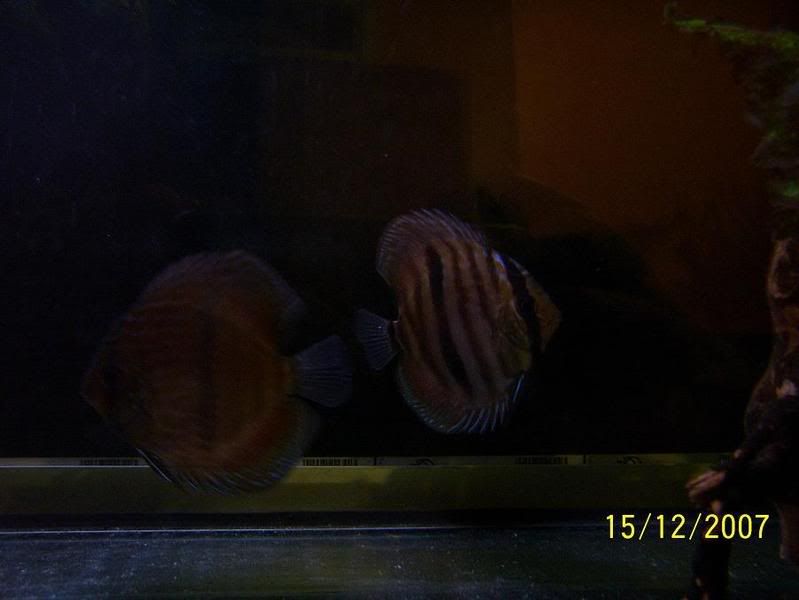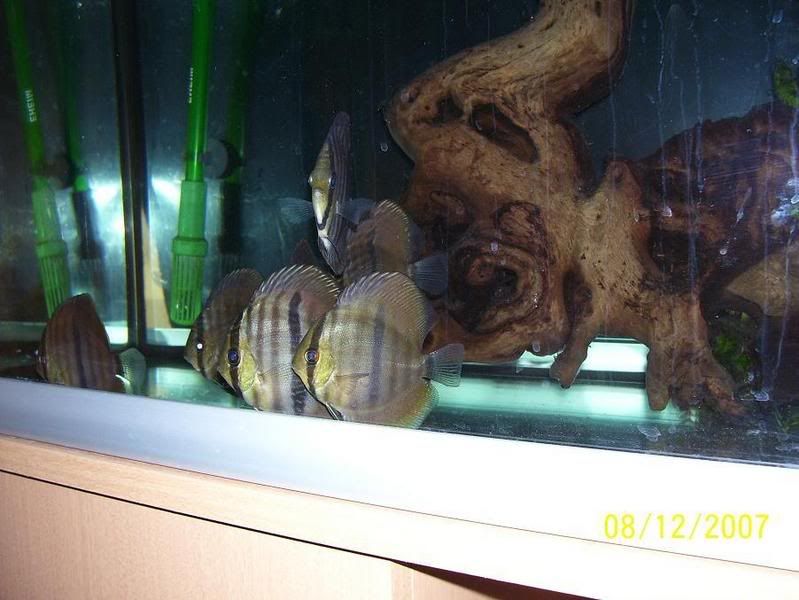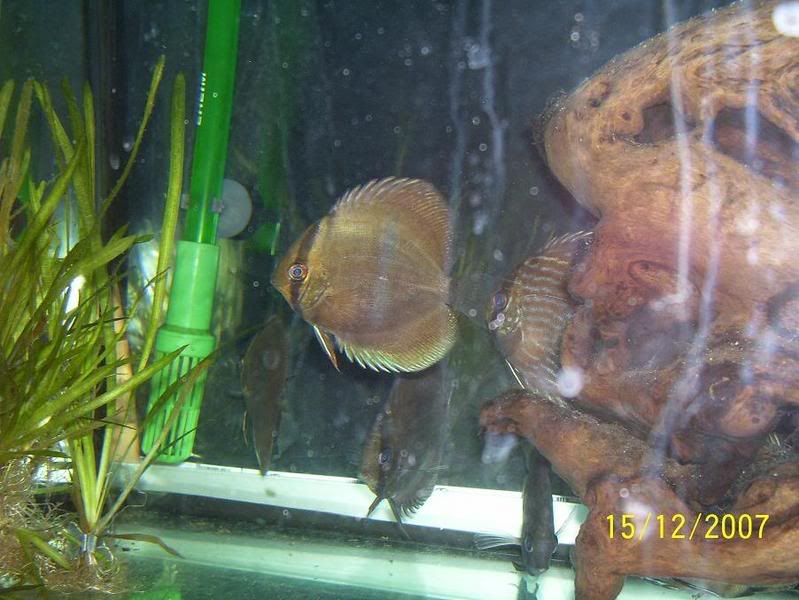Yeah! I love them lots. I see them every day so I don't notice the growth-hopefully they have.
As I am off work for the holidays I am doing 50% water change daily and am feeding 5-6 times a day. They eat anything I put in the tank- they even munch on pleco wafers. I want to make them a beef heart mix or maby a turkey heart mix, what do you guys thing about feeding wilds beefheart-good or not?
Here are a few photos:
In this photo you can see the different patterns on the fish at the moment. 2 have very strong 9 bars, 2 are more brown, and 3 have stronger blue lines on their flanks.
No flash here, still the small 11 watt light.





 . Have they grown since you took the photo ?
. Have they grown since you took the photo ?
 Reply With Quote
Reply With Quote



 Heckel discus feed on plant matters most than other discus species (blue and green). Hearth acts like the steroids- It promotes fast growth, but it destroys organs when they are old and die prematurelly. Discus are not carnivores (e.g. do not eat vertebrate meat (fish, mammals, lizards, birds). You say tthat they enyoy pleco wafers. I would recommend you to use dry ffod on the plant basis as a main food. Yor beatuies are growing just fine.
Heckel discus feed on plant matters most than other discus species (blue and green). Hearth acts like the steroids- It promotes fast growth, but it destroys organs when they are old and die prematurelly. Discus are not carnivores (e.g. do not eat vertebrate meat (fish, mammals, lizards, birds). You say tthat they enyoy pleco wafers. I would recommend you to use dry ffod on the plant basis as a main food. Yor beatuies are growing just fine.







